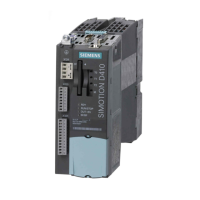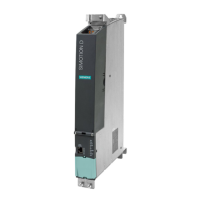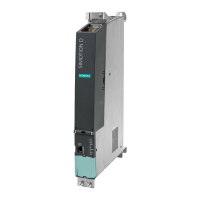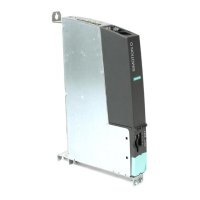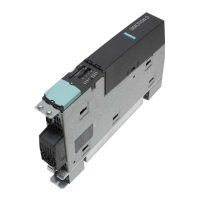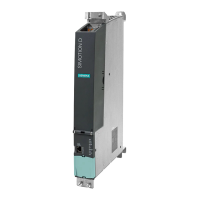Service and maintenance
7.5 SIMOTION CompactFlash card
SIMOTION D4x5-2
Commissioning and Hardware Installation Manual, 02/2012
345
7.5.5 Recommended method of handling CompactFlash cards
Handling CompactFlash cards correctly
Please note the following when handling the CompactFlash card:
● The CompactFlash card may only be inserted or removed when the system is de-
energized.
● CompactFlash cards are not designed to be rewritten an unlimited number of times.
With this in mind, you should avoid writing user data from the application to the
CompactFlash card cyclically. Depending on the system, a write operation from the
application may trigger one or more write operations on the CompactFlash card.
Therefore, we recommend you adopt a conservative approach in terms of the number of
writing processes. In other words, do not perform more than 100,000 write access
instances from the user program over the estimated service life of the application.
● Switching off the SIMOTION D control unit during write accesses to the
CompactFlash card must be avoided at all costs (examples of write accesses to the
CompactFlash card: "Copy RAM to ROM", savePersistentMemoryData,
_saveUnitDataSet, _exportUnitDataSet, backup of SINAMICS NVRAM data via p7775).
In the worst case scenario, switching off the SIMOTION D control unit during write access
can damage the file system on the CompactFlash card. In this case, the
CompactFlash card must be reformatted and the firmware/user data reloaded. During this
process the licenses remain on the CompactFlash card.
7.5.6 Card reader for CF cards
Because of the quickly changing market and the large differences in the quality of card
readers, no specific recommendation can be made (except for the following card reader).
If problems occur identifying the CF card, this may be due to an incorrect power up of the
card reader.
Card reader for CF/SD memory media,
with USB connection
Order number: 6FC5 335-0AA00-0AA0

